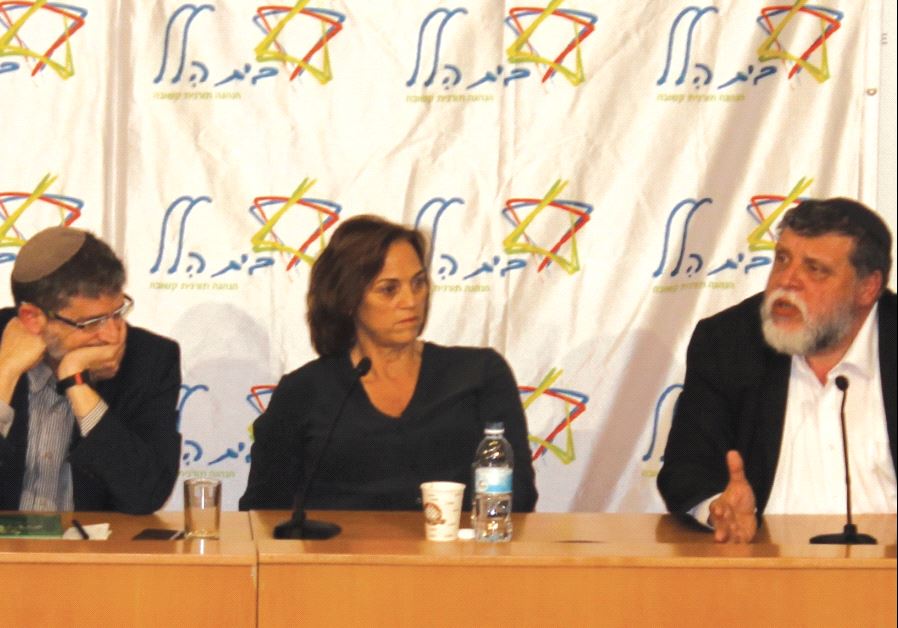Speaking up for Syria
Beit Hillel hosts an event to deepen Jewish dialogue on the humanitarian crisis
 (Left to right) Rachelle Sprecher Fraenkel, Rabbi Yehuda Gilad, Dr. Ruth Calderon and Rabbi Rafi Feuerstein(photo credit: BEIT HILLEL)ByARIEL DOMINIQUE HENDELMANRead More
(Left to right) Rachelle Sprecher Fraenkel, Rabbi Yehuda Gilad, Dr. Ruth Calderon and Rabbi Rafi Feuerstein(photo credit: BEIT HILLEL)ByARIEL DOMINIQUE HENDELMANRead More